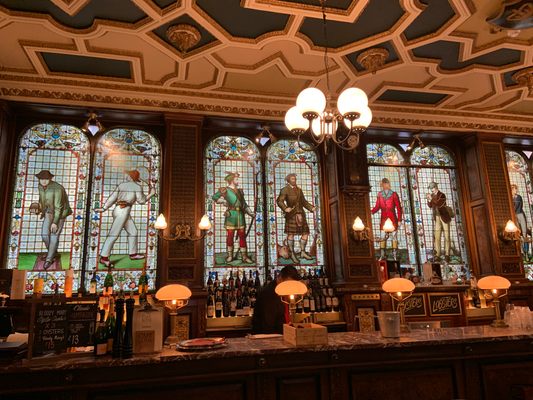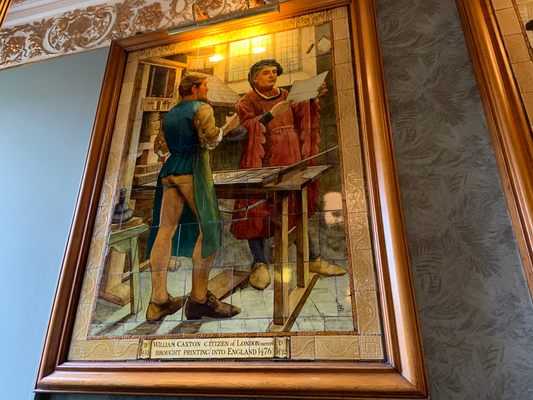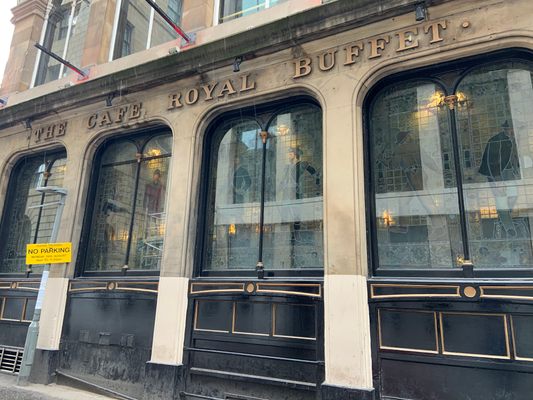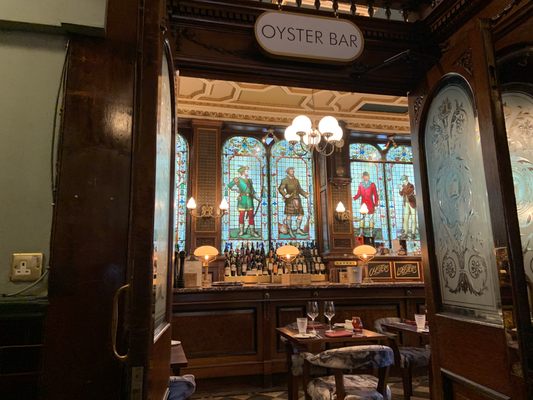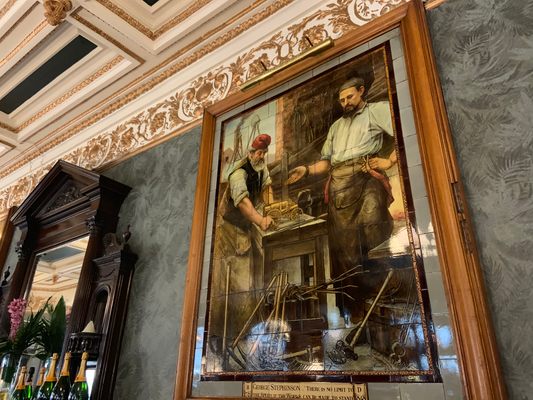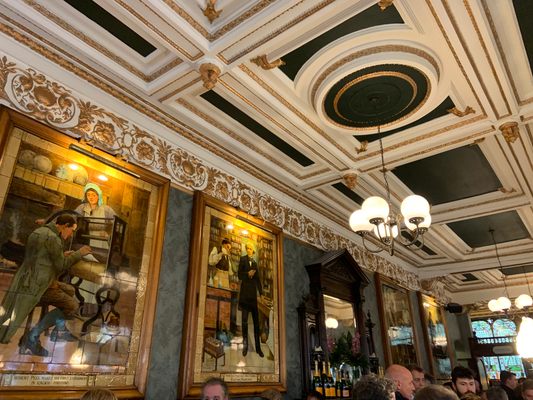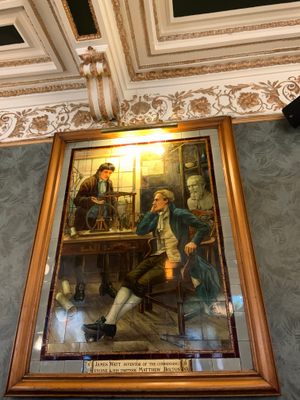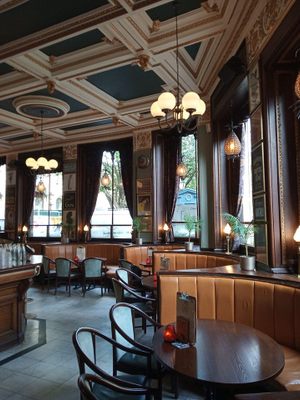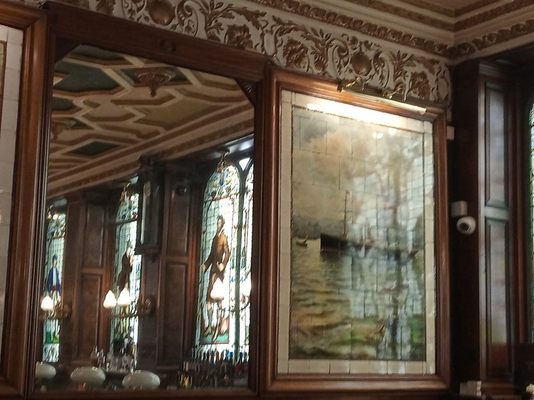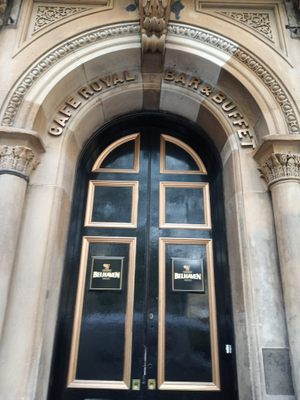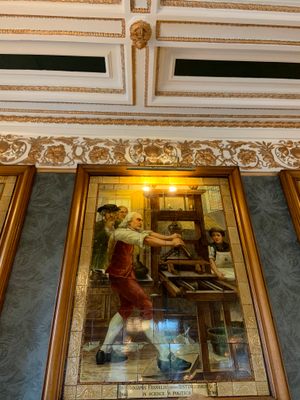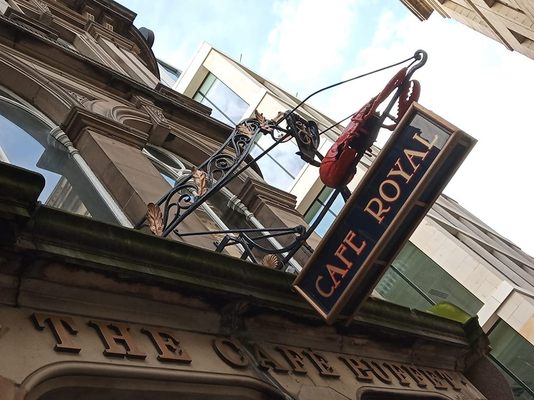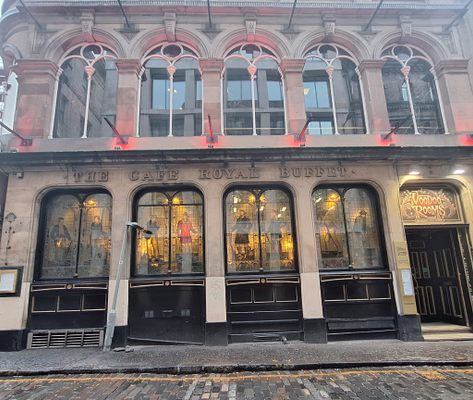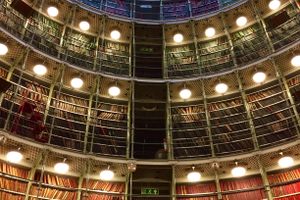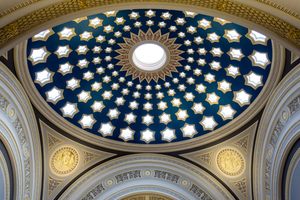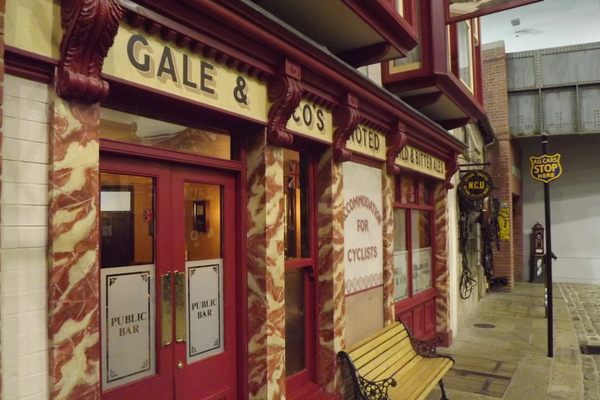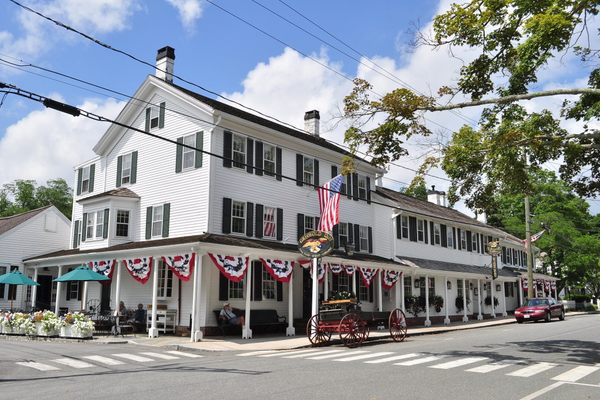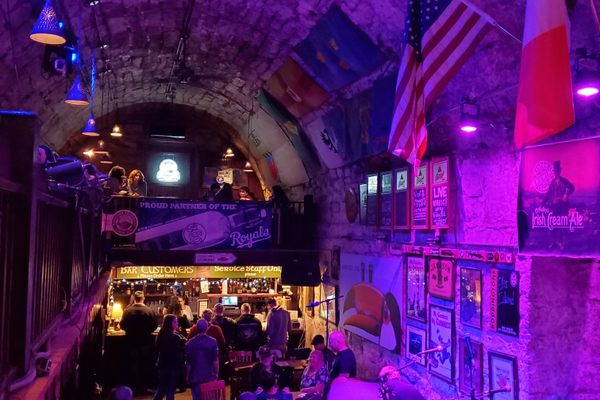About
Just a block away from the more touristy Princes Street, in the shadow of the National Records and gleaming Apple Store, lies a stone building that houses one of Scotland’s most beautiful bars.
Originally opened across the street in 1826, Cafe Royal has been in its current home since 1863. Entering the bar, your eye may go straight toward the chandeliers, the gilded trim on the ceiling, or, if you’re thirsty, the list of whiskies and cask ales. But the space's crown jewels are its six Royal Doulton ceramic tile portraits celebrating some of history's greatest innovators. Above happily chatting patrons, murals depict William Caxton examining the work of his printing press (he's credited with bringing the technology to England in the 15th century) and George Stephenson, a pioneer of locomotive engineering and "the Father of Railways," in his workshop.
Rounding out the hall of innovation are homages to Benjamin Franklin, James Watt, Robert Peel, and Michael Faraday. The pieces, based on paintings by John Eyre, were purchased by the bar's owner in 1886 at Edinburgh's International Exhibition of Science, Industry and Art, and are rare examples of remnants from the showcase.
In the adjacent restaurant, a giant 19th-century stained glass window portrays various outdoor sports enjoyed by Scots, including tennis, lawn bowling, archery, hunting, rugby, and cricket. In addition to the feast for the eyes, Cafe Royal also serves up plenty of delightful dishes, ranging from seafood such as oysters, Arbroath smokie (smoked haddock from the town of Arbroath), and Cullen skink (a kind of seafood chowder) to steaks and the requisite haggis.
The restaurant and its precious decor were almost lost in the late 1960s when the owner at the time tried to sell the building to Woolworths. Luckily, the city stepped in and, with the help of 8,700 petition signatures, marked the building as preserved.
Related Tags
Know Before You Go
It can get crowded around happy hour, so try to visit earlier in the day.
Flavors of Scotland: Beyond the Haggis
Smoked seafood, single malt whisky, and warm hospitality.
Book NowPublished
September 9, 2019
